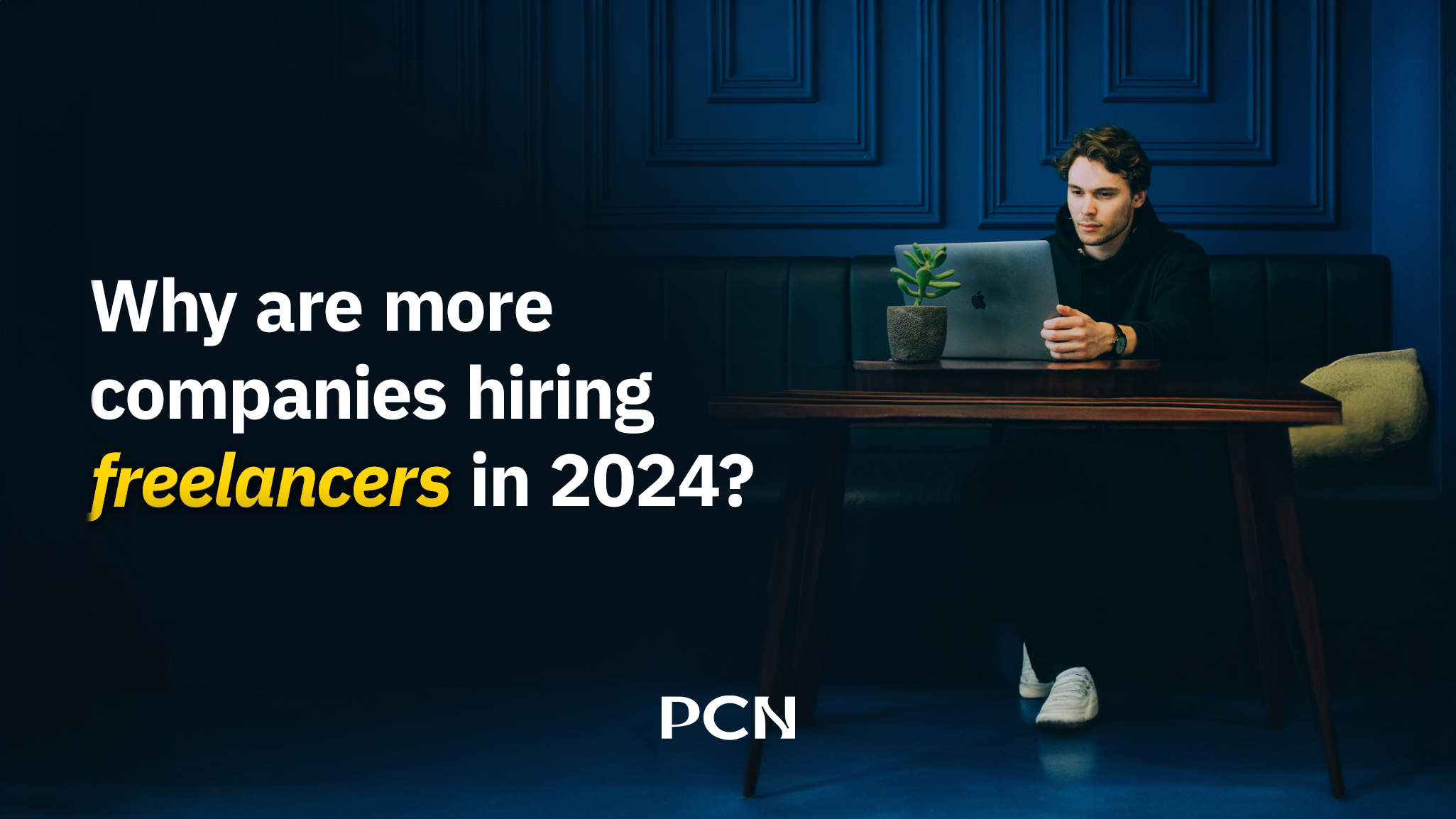Why are more companies hiring freelancers in 2024?
According to the Dutch Chamber of Commerce (KvK), the number of freelancers in the Netherlands has increased by 85% over the past decade, indicating a major trend towards freelance hiring by companies. Today, the Netherlands is home to 1.6 million freelancers!
This increase in freelance workers is not surprising, considering the many benefits it brings to businesses. Below, we outline the top reasons why the freelance model is working so well for many of our clients.
1- Larger Talent Pool
With the rise of remote work, more professionals have decided to opt for contract-based roles. This has given companies access to a larger global workforce with a diverse range of skills and perspectives.
Hiring freelancers allows businesses to find the precise expertise, qualifications, and skills they need, rather than settling for the most suitable candidate locally. This flexibility in hiring freelancers from different parts of the world means companies can operate around the clock, increasing productivity and efficiency.
2- Access to the most specialised experts
Companies sometimes need particular expertise for specific projects and hiring permanent employees with these skills is often not financially viable.
Most freelancers offer specialised skills that may not be available within the company’s team. By hiring freelancers, companies can access specific talents for short-term projects without the need for long-term commitments. This approach provides businesses with the flexibility to bring in the right expertise exactly when it’s needed, without the ongoing costs associated with permanent hires.
Freelancers are typically experts in their fields, bringing a high level of proficiency and up-to-date knowledge. This expertise can be crucial for projects that require niche skills or advanced technical capabilities. For example, a company might need a cybersecurity specialist for a particular project but may not have the demand to justify a full-time position. In such cases, hiring a freelancer can be a cost-effective solution that delivers the required expertise precisely when needed.
3- Cost-effectiveness
Hiring full-time employees comes with a variety of costs, such as salary, benefits, trainings, PTO, office space, health insurance and more. These expenses can add up quickly, significantly impacting a company’s budget.
In comparison, hiring freelancers helps businesses reduce many of these costs. Freelancers typically work remotely, eliminating the need for companies to provide office space and related overhead expenses. They also supply their own tools and equipment, which means businesses don’t need to invest in additional resources for their work.
Moreover, freelancers are often self-employed, which brings additional savings for companies. Businesses are not responsible for providing health insurance, paid time off, or other employee benefits to freelancers. This can result in substantial cost reductions, allowing companies to allocate their budget more effectively towards other critical areas such as innovation, marketing, or product development.
Another advantage of hiring freelancers is the elimination of training costs. Freelancers generally come with specialised skills and experience, requiring minimal onboarding. This allows them to start contributing to projects immediately, enhancing productivity and efficiency. Companies can thus benefit from their expertise without the time and expense associated with training full-time employees.
4- On-demand availability
Another significant benefit of hiring freelancers is their on-demand availability. The hiring process for freelancers is typically quick and efficient, as they are often ready to start work on short notice. This flexibility allows freelancers to quickly adapt to project timelines and meet tight deadlines, making them an ideal solution for businesses with urgent needs.
This on-demand availability can be beneficial for companies facing tight project schedules or unexpected workloads. When a critical project arises or an existing one requires additional resources, freelancers can be brought in swiftly to ensure that deadlines are met without compromising on quality.
This rapid response capability is invaluable in today’s fast-paced business environment, where agility and responsiveness are key to staying competitive.
5- Increased Flexibility
Hiring freelancers typically offers more hiring flexibility for businesses, allowing them to quickly scale up or down as needed and reducing risks.
This is particularly beneficial for companies with fluctuating workloads or seasonal demands, as it gives them the agility to quickly ramp up to meet specific demand or cut expenses accordingly, due to the lack of long-term commitment.
Overall, these advantages make the freelance model an attractive option for businesses, helping them to stay competitive and mitigate risk, especially in fast-paced industries like Fintech, cybersecurity, tech, and Salesforce roles.
If you are looking to explore freelance opportunities or need to hire top-tier freelancers in these fields, don’t hesitate to reach out to our freelance recruitment expert & PCN Projects Director, Calum Peacock. Would you like to find out more about our hiring processes? Please contact us to see how our recruitment specialists can leverage your team and business.





